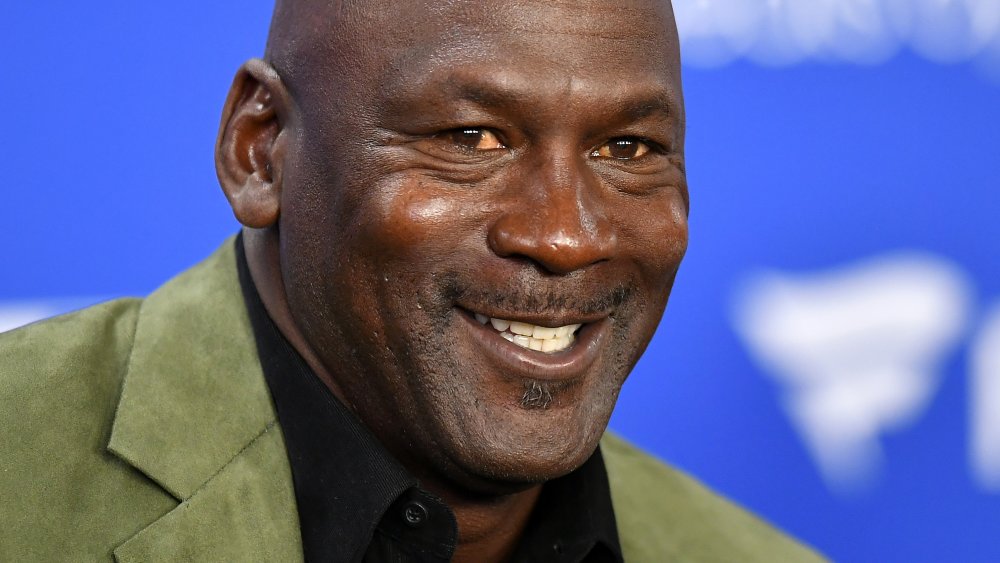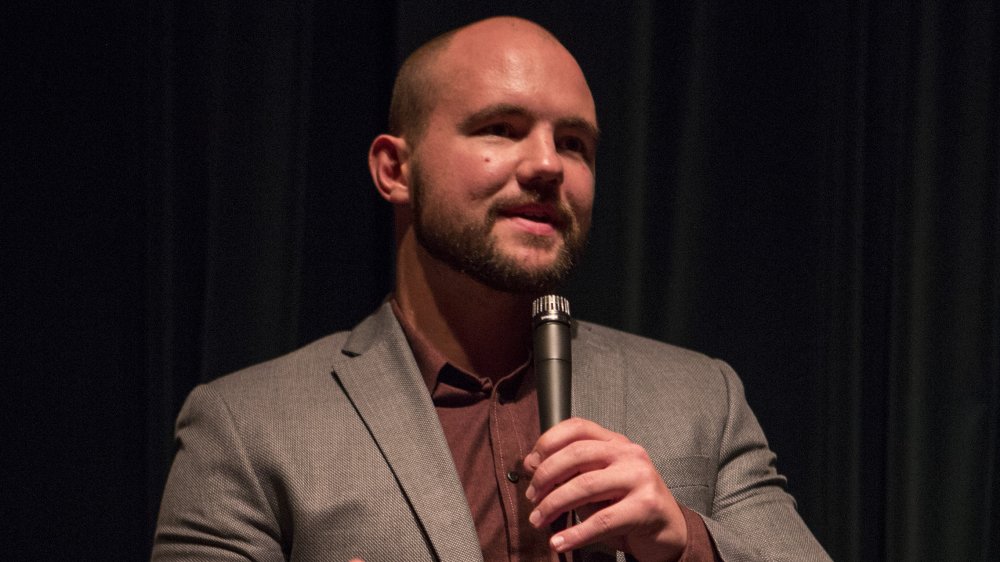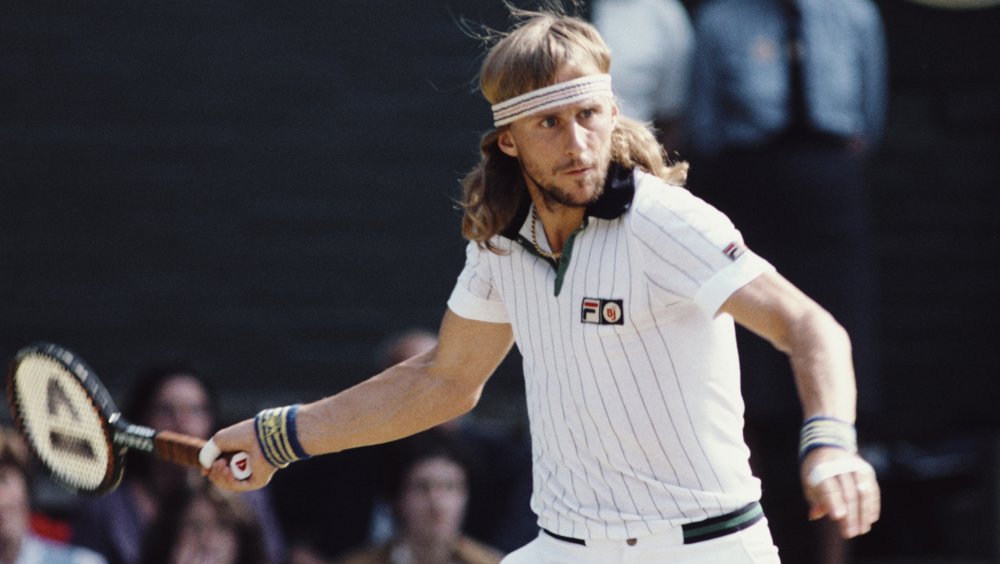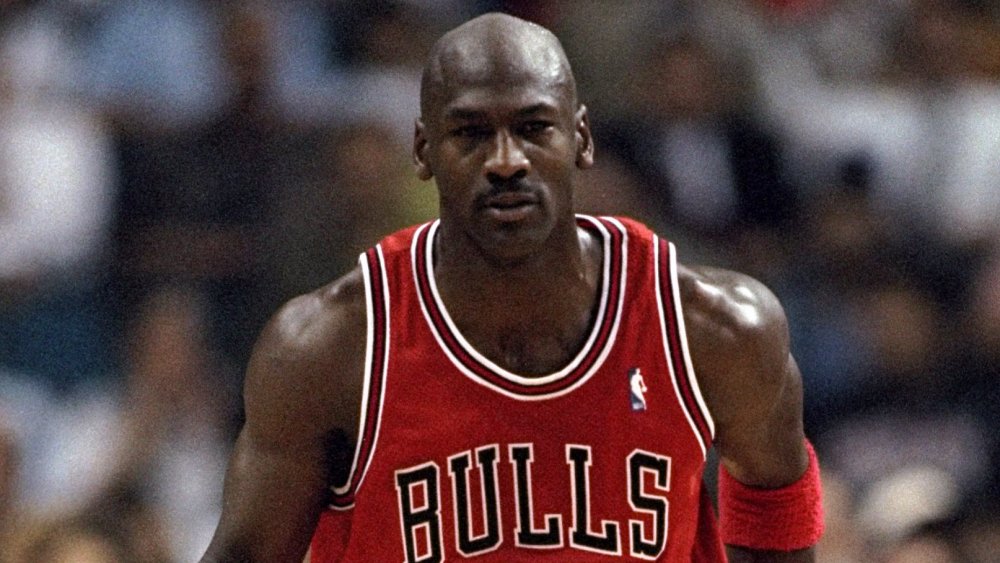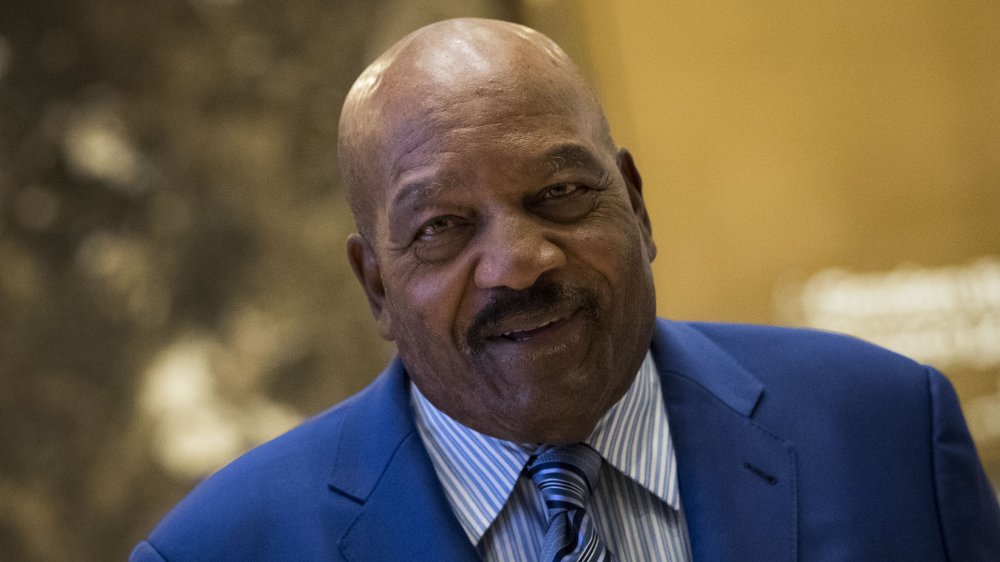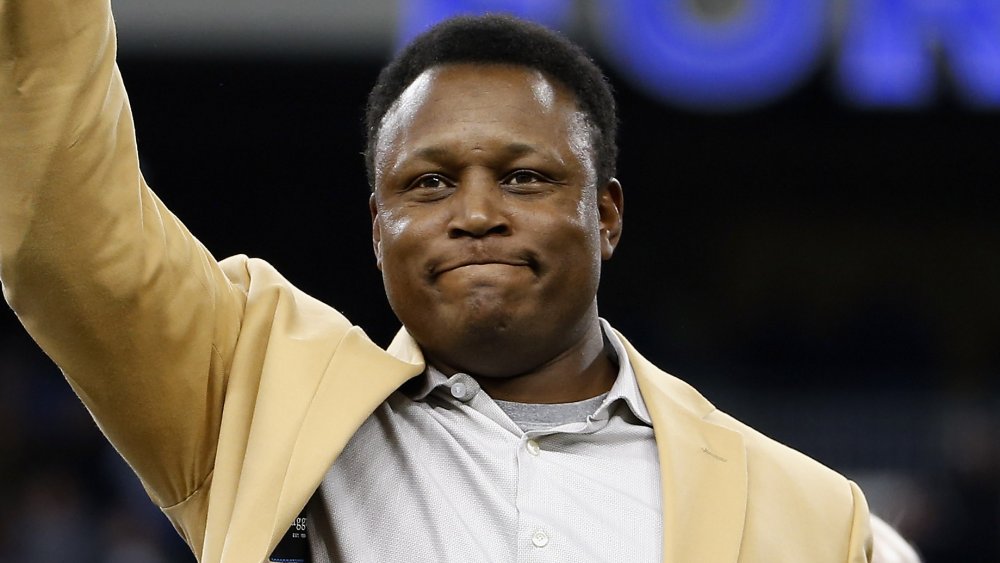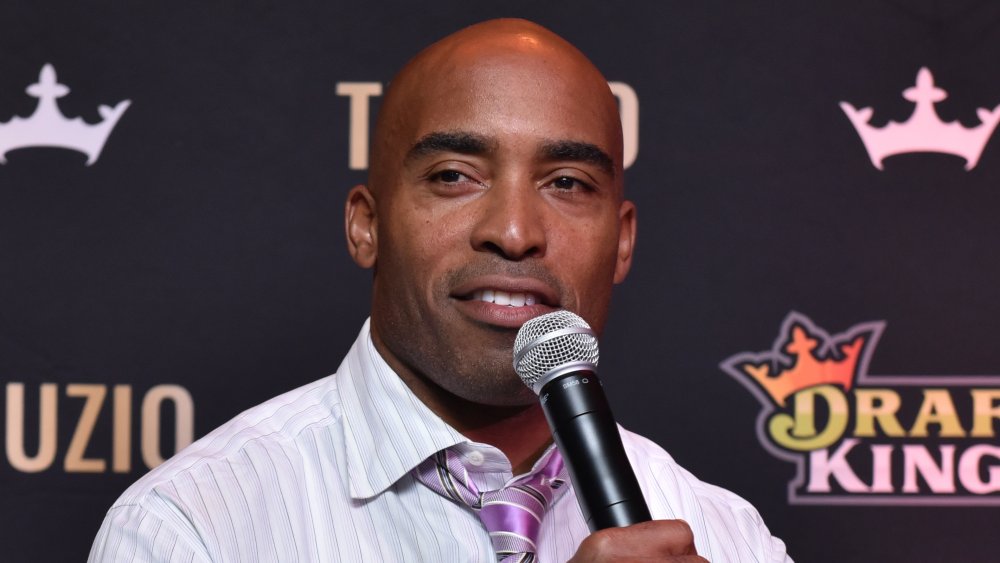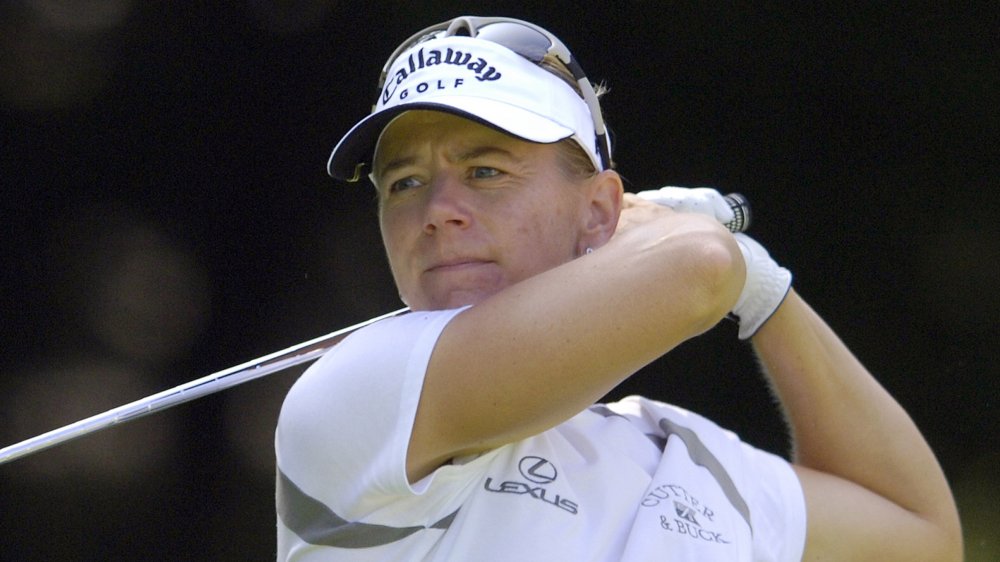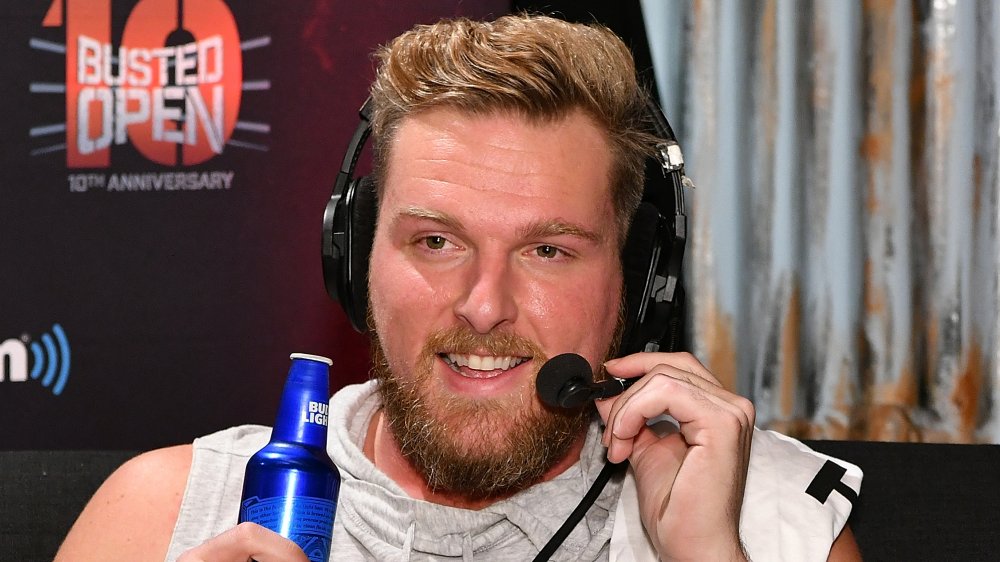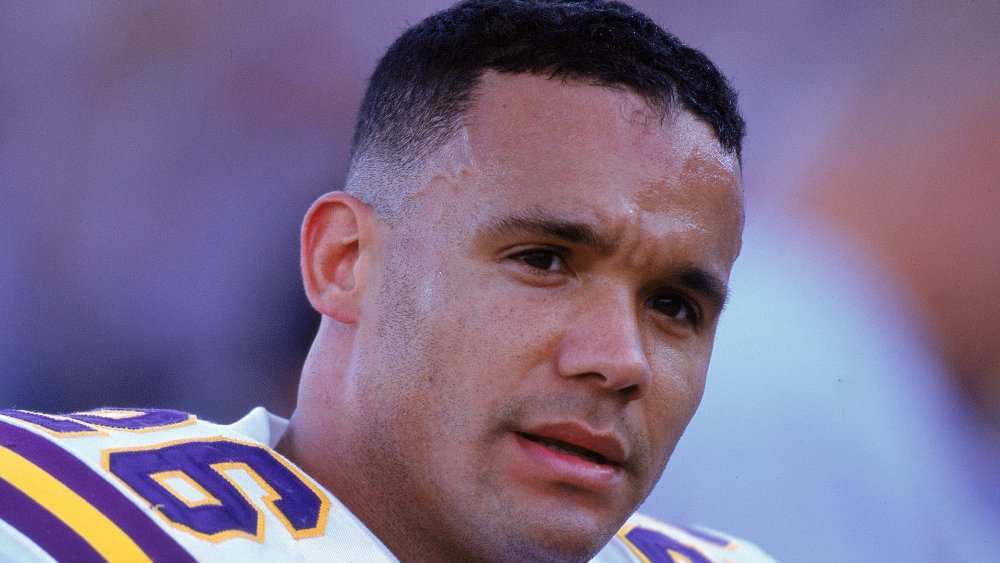Famous Athletes Who Retired Too Soon
As sports fans, we want our favorite athletes to play forever. We love to see potential realized, greatness achieved, and records broken. The sad truth is, few athletes get to retire on their own terms, and even fewer have long and flourishing careers at the top of their game. According to HuffPost, the average professional athlete spends approximately 10 years in their sport. In the NFL, that average drops to less than four years.
Whether they are young and on the rise or looking to put a bow on a magnificent career, all too often, a professional sports star's time in their respective league ends prematurely due to injury or illness. Consider legends such as Bobby Orr, Magic Johnson, Bo Jackson, and Lou Gehrig: You may wonder what would have happened if they were able to stick around for a few more years, but you understand their decision to retire.
In other cases, however, athletes have walked away from remarkable careers at surprising points. Some have left to pursue different lines of work, others for personal reasons. Many of these figures were criticized and questioned for their decisions because they did not fit the standard narrative. Here are some famous athletes who fans believe retired too soon.
Chris Borland's early retirement drew some criticism
In 2014, rookie linebacker Chris Borland led the San Francisco 49ers in tackles. He received recognition for his play, including an NFC Defensive Player of the Week, and was regarded as one of the most promising young players in the game. Then, before the next season, Borland hung up his cleats. "I just honestly want to do what's best for my health," he told ESPN's Outside the Lines. "From what I've researched and what I've experienced, I don't think it's worth the risk."
Borland was diagnosed with a concussion in middle school, another in high school, and according to SF Gate, he also continued on with an undiagnosed concussion at training camp his rookie year. When Borland retired, he cited fears about the mid- and long-term effects of the injuries. In his statement, he brought up "Mike Webster and Dave Duerson and Ray Easterling," three former players who were diagnosed with the brain disease chronic traumatic encephalopathy (CTE) and suffered greatly. He did some reading, spoke to experts, and he made his decision. Months later, ESPN called him "the most dangerous man in football." By drawing attention to concussions and brain injuries, he represented a threat to the NFL.
Borland told Outside the Lines, "I think in the eyes of a lot of circles, especially within football, I'm the soft guy. But I'm fine with being the soft, healthy guy." In the end, he forfeited at least $2.35 million for his health.
Björn Borg was ready to move on from tennis
Björn Borg was one of the most dominant tennis players to ever take the court. His list of accolades includes a whopping 11 Grand Slam wins, and he achieved a total of 61 titles all before his 27th birthday. And then, seemingly out of nowhere, the tennis powerhouse retired. After making his announcement early in 1983, Borg told The New York Times he had lost his passion for the game. "When you go out on the court,” he said, ”you should say this is great, I'm going to hit the tennis ball, I'm going to try to win every point, and I like to make a good shot. If you don't think and feel that, it's very difficult to play."
Borg also said that he enjoyed spending time with his wife, Mariana, which of course led to salacious rumors that he was forced to shoot down. "A lot of people say, 'Why do I quit tennis? There has to be a reason,'" he told The Washington Post, adding, "It can't be that I don't enjoy tennis. It must be Mariana who doesn't like me to play tennis."
While Borg would return to tennis in the early '90s, his comeback was short-lived and unsuccessful. His wood racket was outdated, his fitness levels were not what they once were, and the game had moved on without him.
Michael Jordan took an unexpected break from basketball
Michael Jordan shocked the world with his retirement in 1993. Why did he suddenly slam the brakes after helping the Chicago Bulls win three straight championships? "When I lose the sense of motivation and the sense to prove something as a basketball player, it's time for me to move away from the game of basketball," he said at the time. "I have reached the pinnacle of my career." The following year, he signed a minor league deal to play baseball in the Chicago White Sox system. Jordan returned to the NBA in 1995 and proved he was still at his best: He led the Bulls to another three-peat.
The question of why he retired in 1993 lingered. Was it about passion, baseball, or something else? According to Sporting News, the shooting death of Jordan's father likely played a big role. After all, he did say that "it's time to be a little bit unselfish in terms of spending more time with my family, my wife, my kids, and just get back to a normal life, as close to it as I could."
There's also the conspiracy theory that suggests Jordan was secretly suspended for his gambling issues, and the retirement was a way for him to go quietly into the night. Or maybe he was busy saving the planet from alien invaders, à la Space Jam. Whatever the reason, many fans still wonder if the Bulls would have won eight straight titles had Jordan stayed.
Hollywood called Jim Brown's name
Jim Brown played nine seasons in the NFL. He was the rushing leader for eight of those years. In 1965, he took home his third MVP award. In 1966, he retired, because apparently, the allure of Hollywood was too strong. As The Undefeated noted, Brown had signed on to appear in the film, The Dirty Dozen. With training camp fast approaching, the NFL fullback was still on set in London, as heavy rains delayed shooting.
That's when the Cleveland Browns owner, Art Modell, issued a public warning. "No veteran Browns player has been granted or will be given permission to report late to our training camp at Hiram College — and this includes Jim Brown," he stated in his press release (via The Undefeated). "Should Jim fail to report to Hiram at check-in time deadline, which is Sunday, July 17, then I will have no alternative to suspend him without pay."
Not a man who liked to be pushed, Brown responded by retiring. "I was very sorry to see you make the statements that you did, because it was not a victory for you or I but for the newspaper men," he wrote to Modell. "Fortunately, I seem to have a little more faith in you than you have in me." Brown was 30 years old when he ultimately decided he was done with the league. The former fullback would go on to have a successful movie career.
Barry Sanders retired just short of an NFL record
Few retirements were as befuddling as Barry Sanders's exit from the NFL. In 1999, he called it quits after a remarkable career. "The reason I am retiring is very simple," he said in a statement (via The Washington Post). "My desire to exit the game is greater than my desire to remain in it." His reasoning was understandable, but it was his timing that had everyone guessing: When he called it quits, Sanders was just 1,457 yards short of the then-all-time career rushing record. As the Post noted, Sanders averaged more than 2,000 yards per season, and he was one of only four players to do that at the time.
It was an unexpected move, and as Forbes pointed out, some blamed the front office and the coaching staff. Sanders's father criticized his son's decision to retire and leave millions of dollars on the table, but the NFL legend didn't regret his decision. As for why he retired early, he did later reveal that did not like watching great players leave the Lions only to have less talented players to take their place. "That realization trivialized everything I did during the offseason to prepare myself," Sanders wrote in his book, Barry Sanders Now You See Him (via Forbes). "It trivialized everything I dreamed about from the time I was a kid in Wichita."
The 'physical grind' led to Tiki Barber's early NFL exit
When Tiki Barber retired from the New York Giants at the age of 35, he certainly was not a young buck, but he was coming off back-to-back dominant seasons in 2005 and 2006. According to The New York Times, he "cited the wear and tear on his body," as one of his motivators for leaving the game, but there were other things going on behind the scenes as well. Barber placed plenty of blame at the feet of his former coach, Tom Coughlin.
"Coach Coughlin is very hard-nosed, and I didn't get a lot of time off, couldn't sit down and rest myself, and so it was a constant grind — a physical grind on me that started to take its toll," he said. "The grind took its toll on me and really forced me to start thinking about what I wanted to do next. And that's not a bad thing. That's a good thing, for me at least. Maybe not for the Giants, because they lose one of their great players, but for me, it is."
After he left the Giants, Barber entered the world of broadcasting. That career would not last more than a few years, however, as NBC didn't renew Barber's contract in 2010. The football star tried to make a return to the game after that, but no teams scooped him up. Barber is still in showbiz, and in 2019, he made his Broadway debut in Kinky Boots.
Annika Sörenstam left golf to pursue 'other priorities'
Women's golf was owned by Annika Sörenstam for more than a decade. When she retired in 2008, she had claimed the most tournament wins and was the biggest earner in women's golf history. But after racking up 90 international wins and eight LGPA Player of the Year Awards, the then 37-year-old Sörenstam stated that she had other things to accomplish in her life. She had, as she put it, "other priorities." According to The New York Times, those included being the founder of a golf academy, designing courses, hosting tournaments, running a clothing line, and so on. She was ready to move on, and move on is what she did.
The LPGA and World Golf hall of famer also mentioned that she wanted to start a family. The year following her retirement, Sörenstam announced that she was expecting her first child. Two years after that, she gave birth to her second child. The ANNIKA brand that she established launched a successful line of golf apparel and is involved in six golf courses globally. But wait, there's more: Sörenstam also became a golf analyst and motivational speaker.
Pat McAfee wanted to give comedy a try
Star punter Pat McAfee was 29 when he announced his retirement on The Barstool Rundown on Comedy Central. He started a podcast at the media company in 2017, but the following year he revealed on Twitter that he would be leaving Barstool Sports. He now hosts a radio show, is a sideline reporter, and works with the WWE.
While McAfee mentioned that injuries and surgeries played a part in his decision to walk away from football, he also had other career aspirations that were calling his name. "The last year, I was thinking about retiring going into the season," he said on The Pat McAfee Show. "I had done standup at this point — I did a lot of standup [comedy]. I was starting to really enjoy it. I was starting to fall in love with everything off the field."
There were also the problems he had with the Indianapolis Colts GM, Ryan Grigson. After the GM scolded McAfee and threatened to fine him for posting an explicit picture online, the punter walked out and off the team. "I just don't feel like you guys appreciate or are grateful for what I'm doing for you," he allegedly told his coach, Chuck Pagano, afterwards (via USA Today). "I don't think the NFL is for me anymore, and to be honest, I don't think I want to make money for you guys anymore. And I am done. I am done after this season."
Robert Smith's early NFL departure was about 'good health'
Robert Smith, running back for the Minnesota Vikings, had just come off his best season in the NFL, leading NFC in rushing and breaking the team record for rushing yards. He was primed to command a big payday in free agency, but then he announced his retirement. In his statement (via Los Angeles Times), he thanked his teammates and coaches but left the reasons for his departure to the imagination of readers.
Though Smith had struggled with injuries in the past, his agent, Neil Cornrich, insisted that injuries did not play into the decision. "He could easily play five more years without jeopardizing his health," Cornrich said to ESPN. "He just decided to go in another direction at this point." Cornrich added that Smith was leaving quite a bit of money on the table. "He would've had unlimited financial opportunities," he said. "But this was not a financial decision."
Yet, years later, Smith suggests that he left because he wanted to preserve his health for his family. "I've got a 5 year old and a 3 year old, and I can run with them and chase them without a problem," Smith said to ESPN. "That's what I wanted to be able to do. It has been a blessing to have good health." Smith took this sentiment, and, well, ran with it: In 2015, he launched wellness app The Fan Health Network.

